The interview was about the Central European Professors’ Network with prof.dr.sc. Davor Derenčinović, “Izdvojeno”.
Introduction to the Central European Professors’ Network. Information about its activities and deliverables in general, and in particularly regarding the research focus “The impact of digital platforms and social media on freedom of expression and pluralism.” The discussion was focused on the following issues:
- Freedom of expression and its restrictions in Europe – definition and scope of freedom of expression. Grounds for restricting freedom of expression under the European Convention on Human Rights – rights of others, secrecy, public order etc.
- Use of social media – expansion of social media in modern world, risks connected with the use of social media, responsibility of providers vis a vis responsibility of users etc.
- Root causes and prevention of disinformation campaigns and their negative consequences – definition and clarification of the concept of disinformation campaigns, producers and generators of those campaigns, motivation behind launching disinformation campaigns.
- Fake news in the context of COVID-19 pandemic – increased vulnerability of various segments of population in the context of the sanitary crisis, confusion and unverified information concerning vaccination, sanitary passes etc., the role of national authorities, executive branch, and courts in addressing of these issues, administrative, civil, and criminal responsibility for creating and disseminating fake news.
- Censorship on the internet, and violations of free speech – constitutional prohibition of censorship, unauthorized restrictions of free speech etc.
- Normative and institutional framework for the prevention of the harmful online content – international legal standards and domestic legislation, prohibition of hate speech, illegal content on the internet (child pornography, trafficking in human beings, live streaming of child sexual abuse etc.).
- Protection of vulnerable groups – children, women and national minorities have been disproportionately affected by new forms of online exploitation, also persons with disabilities are common target of those who are behind disinformation campaigns and disseminating fake news.
- The importance of insisting on truth in post-modern societies – defending the values built on compromise and common understanding enshrined in national constitutions, close connection between truth and values.
- The role, and jurisprudence of the European Court of Human Rights – analysis of landmark cases of the ECHR concerning freedom of expression and protection of privacy.

